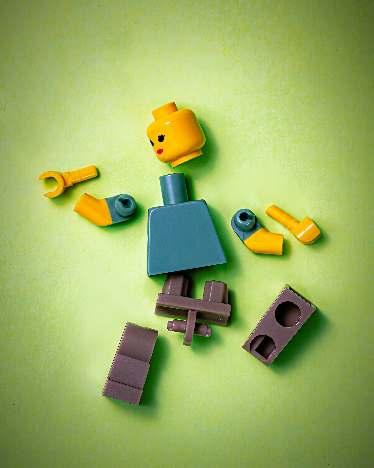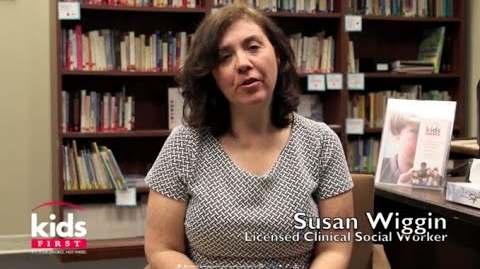HowtoTalktoYourKidsAboutYour Divorce
Clarifying misconceptions about divorce is essential for parents seeking to guide their children through this challenging transition. Many children, especially younger ones, can develop misunderstandings about divorce based on limited information or what they hear from peers. It is crucial for parents to address these misconceptions head-on, providing clear and age-appropriate explanations to help alleviate fears and promote a more accurate understanding of the situation. By doing so, parents can create a supportive environment that fosters healthy emotional expression and communication.
Haveyoutalkedtoyourchildrenyetaboutyour divorce?
What are you planning to say?
Whatquestionshaveyourchildrenaskedyou?
Have you thought about how you are going to respond?
Co-Parenting After Separation: Professional Guidance for a Smooth Transition
Individual counseling is often the first step for many parents. This one-on-one support allows you to explore your feelings, cope with the emotional aftermath of separation, and develop strategies for personal growth. A skilled therapist can help you work through feelings of loss, anger, or confusion, providing a safe space to express your thoughts. This form of counseling not only aids in personal healing but also equips you with tools to be a more e�ective co-parent, ultimately benefiting your children.
Couples counseling, even after separation, can be a vital resource for parents who are committed to creating a cooperative co-parenting relationship. In these sessions, both parents work with a therapist to navigate their differences, improve communication, and establish a shared vision for their children.
Family counseling is another effective option that focuses on the entire family unit. In these sessions, a therapist engages with both parents and children, addressing the emotional and relational challenges that arise from separation.
Child Therapy may be needed. Children typically will walk into their school counselor for advice.
Therapists:
If you have plans to hire a therapist
What type of therapist are you looking for? Who will it be?
ChildTherapist
State any concerns you have concerning your child's well being. Have you shared those concerns with your child's other parent? What is your plan of action?
Respecting the Rights of Kids in Divorce
Kids are impacted by their parent's conflict more than their parent's divorce. The court has adopted a Child Bill of Rights which will be included in your parenting plan. Please take the time to watch the video and read the terms stated in the child bill of rights below.
Child Bill of Rights - Page One of Four
1. Neither parent shall deny the child reasonable use of the telephone to place and receive calls with the other parent and relatives.
2. Neither parent shall speak or write derogatory remarks about the other parent to the child, or engage in abusive, coarse or foul language, which can be overheard by the child whether the language involves the other parent.
3. Neither parent shall permit the children to overhear arguments, negotiations or other substantive discussions about legal or business dealings between the parents.
4. Neither parent shall physically or psychologically attempt to pressure, attempt to influence, pressure or influence the children concerning the opinion or position of the child concerning legal proceedings between the parents.
5. Each parent will permit the child to display photographs of the other parent or both parents in the child’s room.
6. Neither parent shall communicate moral judgments about the other parent to the child concerning the other parent’s choice of values, lifestyle, choice of friends, successes or failures in life (career, financial, relational) or residential choice.
7. The parents will acknowledge to the child that the child has two homes although the child may spend more time at one home than the other.
8. The parents shall cooperate to the greatest extent practicable in sharing time with the child. attack or criticize to the child the extended family of the other parent, the other parent’s career, the living and travel arrangements of the other parent, or lawful activities of the other parent or associates of the other parent..
Child Bill of Rights - Page Three of Four
18. Neither parent will create for, or exaggerate to, the child differences between the parents.
19. Neither parent will say and do things with an eye to gaining the child as an “ally” against the other parent.
20. Neither parent will encourage or instruct the child to be disobedient to the other parent, stepparents, or relatives.
21. Neither parent will reward the child to act negatively toward the other parent.
22. Neither parent will try to make the child believe he or she loves the child more than the other parent, by, for example, saying that he or she loves the child more than the other parent or 18 over-informing the child on adult topics or overindulging the child.
23. Neither parent will discuss child support issues with the child.
24. Neither parent will engage in judgmental, opinionated or negative commentary, physical inspection or interrogations once the child arrives from his/her other home.
25. Neither parent will “rewrite” or “re-script” facts which the child originally known to be different.
26. Neither parent will punish the child physically or threaten such punishment to influence the child to adopt the parent’s negative program, if any, against the other parent.
27. Neither parent will permit the child to be transported by a person who is intoxicated due to consumption of alcohol or illegal drugs.
28. Neither parent will smoke tobacco materials inside structures or vehicles occupied at the time by the child.
Child Bill of Rights - Page Four of Four
29. Each parent will permit the child to carry gifts, toys, clothing, and other items belonging to the child with him or her to the residence of the other parent or relatives or permit the child to take gifts, toys, clothing, and other items belonging to the child back to the residence of the other parent to facilitate the child having with him or her objects, important to the child. The gifts, toys, clothing and other items belonging to the child referred to here, mean items which are reasonable transportable and does not include pets.
CHILD BILL OF RIGHTS Page Two of Four
9. Each parent will permit the child to retain, and allow easy access to, correspondence, greeting cards, and other written materials received from the other parent.
10. Each parent will respect the physical integrity of items possessed by the child which depict the other parent or remind the child of the other parent.
11. Neither parent will trivialize or deny the existence of the other parent to the child.
12. Neither parent will interrogate the child about the other parent nor will either parent discourage comments by the child about the other parent.
13. Neither parent will intercept, “lose”, derail, “forget” or otherwise interfere with communications to the child from the other parent.
14. Neither parent will refuse to acknowledge that the child can have or should have good experiences with the other parent.
15. Neither parent will directly or indirectly attack or criticize to the child the extended family of the other parent, the other parent’s career, the living and travel arrangements of the other parent, or lawful activities of the other parent or associates of the other parent. 16. Neither parent will use the child as a “middleman” by using the child to communicate with the other parent or inappropriate topics. 17. Neither parent will undermine the other parent in the eyes of the child by engaging in the “circumstantial syndrome” which is done by manipulating, changing or rearranging facts.
Most parents will do anything to make sure their kids are taken care of.
Parents are intelligent and make great decisions together for their kids well being. During a marriage its easy to co-parent and make decisions together for your kids. The journey back toward co-parenting during and after the divorce process certainly has its difficulties. Parents feelings of anxiety anger and distrust of the parties and or the legal system alienates one parent from the another. Parents can slip from co-parenting, where they work together for the best interest of their child, to counter parenting, where they find themselves working against each other to the detriment of their child. Aiming toward your goals while addressing your needs and concerns is certainly a step in the right direction.
The state of Texas policy is to help parents effectively co-parent their children.
I have prepared the following handbooks as resources to help parents take the first steps toward the journey to co-parenting:
Tool Kit I - CoParenting Toolkit - Take the First Step
Tool Kit 2 - Effective Co-Parenting
Tool Kit 3 - High Conflict Co-Parenting


















